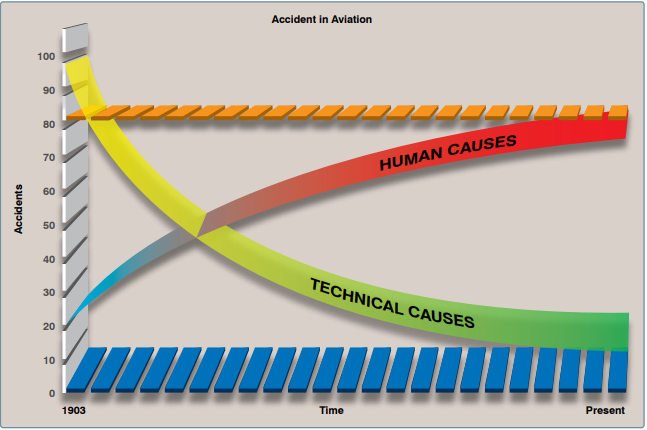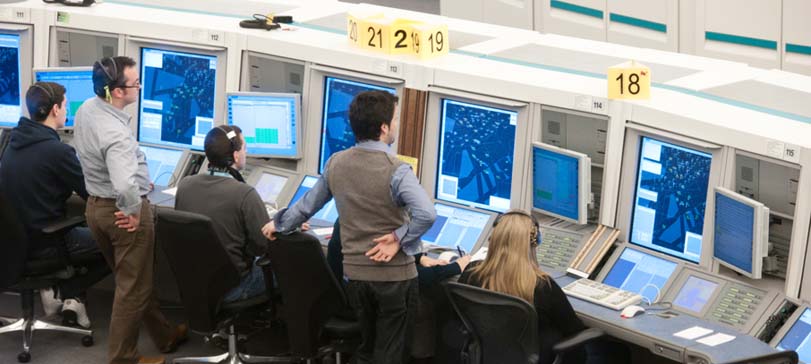Human Factors in ATC
Human error is one of the biggest reasons that cause accidents in aviation. Approximately 60-80% of accidents that occur are related to human error (FAA, 2006). These errors result from the wide range of factors that vary between humans. Human factors are the capabilities of a person, whether that be mental or physical, that contribute to their daily performance. One thing to understand about human factors is that it varies between humans because of the individual's capabilities, strengths, weaknesses, or limitations (FAA, 2018). Mental factors can include disorders, difficult emotions such as depression, stress, or even the coping mechanism used to deal with problems encountered. Physical factors could be the literal size of the person when referencing the task needed to be completed or something that can limit someone from being efficient such as heavy tools. For example, if someone needs to enter a crawl space or a tight area, they may have difficulties if their body or hand is too big for the area.
The team I decided to focus on is Air Traffic Control (ATC). A challenge faced by this team is the relationship and interactions between controllers. If two controllers are working at the same time and they are not mature enough to set aside their differences during work, then it can cause issues within the environment and controlling ability and efficiency of aircraft. If one of the controllers wants to be petty, they could ignore their responsibilities or forget the scenario coming up in the skies and have a near mishap which could result from the loss of situational awareness to issue traffic or other important advisories. This can easily be resolved by the manager or another individual counseling them on how their relationship shouldn’t affect their controlling ability. If it continues, they could also experience a suspension from work or perhaps a team building exercise to motivate them. Two other human factors experienced by ATC that can impact aviation negatively is a controller being restless, due to lack of sleep, or experiencing unfavorable emotions whether it be related to work or not. I’ve personally seen it myself quite a few times that these two factors can limit the effectiveness of a controller. This can cause the controller to experience a loss of situational awareness, poor decision making, and unconfident or unfinished transmissions or messages between pilots and controllers. With these two situations, the team could suffer by having to also somewhat monitor that person’s area of responsibility even more or cause other controllers to be unfocused as well. A solution to the lack of sleep would solely be on the person managing their time better to not let it affect their attention at work. The solutions that could be used for someone experiencing emotional issues would vary as to what the issue is. If someone is experiencing home troubles and it’s carrying over to work and affecting their performance, then they’ll need counseling or other forms of help to ease their mind. With almost any emotional issue, the majority of people would permit an excuse to stop working until resolved due to the importance of ATC relating to how they could put someone else’s life in danger.
References
FAA. (2018). Aviation Maintenance Technician Handbook – General: FAA-H-8083-30A
(ASA FAA Handbook Series) (2018th ed.). Aviation Supplies & Academics, Inc.
FAA. (2006, July). Human Error and Commercial Aviation Accidents: A Comprehensive, Fine-Grained
Analysis Using HFACS (DOT/FAA/AM-06/18).
https://www.faa.gov/data_research/research/med_humanfacs/oamtechreports/2000s/media/200618.pdf


Comments
Post a Comment